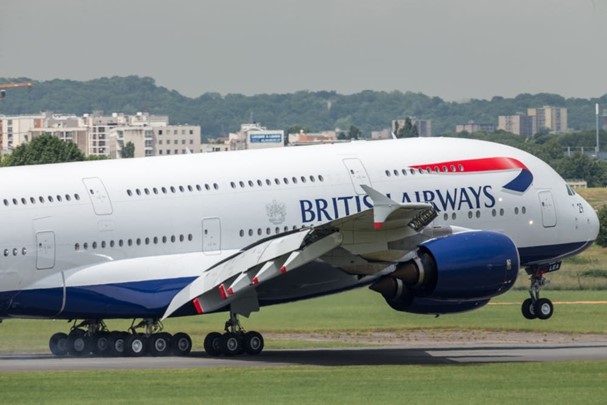British Airways says it has yet again fallen victim to worldwide supply chain issues which is now stopping it from fixing or replacing a growing number of broken Business Class seats across its Airbus A380 superjumbo fleet.
The Heathrow-based airline told staffers in an internal memo that there are currently 50 broken Club World business class seats across the A380 fleet that is currently in service.
British Airways has a total of 12 doubledeck superjumbos in its fleet and all of them have been pushed back into service after spending most of the pandemic in longterm storage, such is the demand for air travel.
But it appears that the time that these aircraft spent parked up in Madrid and further afield has taken its toll, and many of BA’s A380s are suffering with a growing list of defects.
None of these issues affects the airworthiness of the A380, but passengers and even cabin crew are booming increasingly annoyed at a snag list that is becoming longer and longer.
In an internal memo, the airline said it was hoping to start sending its A380s to a specialist maintenance base in Manilla, Philippines for so-called ‘heavy maintenance’ checks but worldwide supply chain problems are slowing down engineers.
In its Club World cabin, around 50 business class seats are currently broken or in aviation terms ‘inop’ (standing for inoperative).
Of those, 40 seats will need to be completely replaced. Unfortunately, the seat manufacturer is facing delays in getting hold of the necessary parts, so BA is focusing on trying to keep the remaining seats in working order.
The planes are also facing problems with its chillers that keep food fresh and drinks cold, although the airline is able to rely on dry ice as a temporary solution while repairs can be sourced.
There are also problems with the A380s inflight entertainment system, and while the manufacturer says it has plenty of the raw resources to fix the issues, staff shortages are slowing down the replacement process.
British Airways is certainly not alone in facing issues with its Airbus A380s. Other airlines that put these planes into long-term storage during the pandemic, including Qantas, are also facing an abnormally high number of mechanical issues with the aircraft.
Earlier this week, it was also revealed that the Europan air safety regulator had published a directive calling on A380 operators to replace some of the emergency slides on the aircraft because the extended periods that some spent in storage is calling the seams of the slides to split.
German flag carrier Lufthansa is also planning to return its A380s into service from next summer due to the demand for air travel and delays in receiving other aircraft on order. For now, Lufthansa only intends to reactivate six of its A380s, but the airline says it is spending time working through maintenance issues before putting them back into service.
In a statement, a spokesperson for British Airways told us: “The A380 is a much-loved part of the British Airways fleet, and we’re working closely with our suppliers to maintain the standards our customers expect when they fly with us.”























